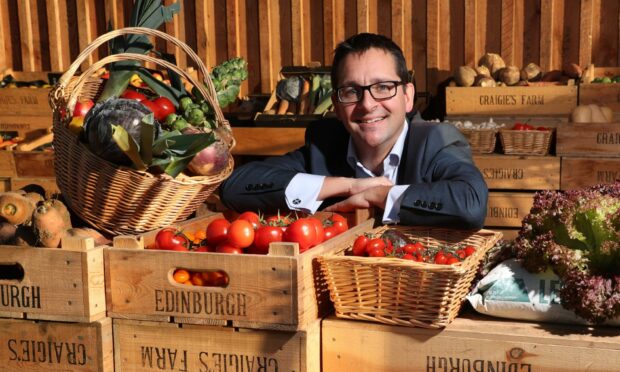The Scotland Food & Drink Partnership has today launched the food and drink industry’s Net Zero Commitment to unite industry efforts and steer its journey to a Net Zero future.
The Net Zero Commitment consists of five long-term commitments, underpinned by a programme of targeted interventions, to help Scotland’s food and drink sector meet Net Zero targets.
This will be done by addressing the challenges and opportunities that transitioning to a Net Zero sector offers producers, manufacturers and those involved throughout the food and drink supply chain.
The commitment was announced at a COP26 event held in Glasgow by David Thomson, chief executive of Food & Drink Federation Scotland, James Withers, chief executive of Scotland Food & Drink and Mairi Gougeon MSP, cabinet secretary for Rural Affairs and Islands.
Five commitments
The Partnership’s five long-term commitments include:
- Placing Net Zero at the heart of all Scotland Food & Drink’s sector strategies.
- Supporting Scotland’s food and drink businesses on the Net Zero journey with planning and practical interventions to cater for their specific challenges and needs.
- Tackling key shared challenges through collaboration which goes beyond the existing full supply chain approach to encompass other sectors in addressing asset lifecycle planning, energy, packaging, waste and carbon sequestration.
- Using data to drive activity, identifying opportunities as well as challenges.
- Making the sector’s Net Zero transition a just one, looking to support green skills, fair work and lifelong careers in both rural and urban areas of Scotland.
Underpinning the Partnership’s commitments is a series of practical interventions to support the sector in its transition to net zero.
Interventions include the introduction of a pilot Net Zero Advisor programme to support businesses making the transition to net zero, learning events and full realignment of the Partnership’s sector strategies, including Ambition 2030, with climate change commitments.
Rural Affairs Secretary Mairi Gougeon said food and drink firms across Scotland had earned an enviable reputation for quality at home and abroad. She also highlighted the importance of consumers behaviors changing, too.
She said: “Consumers too are taking an increasing interest in where their food comes from – people rightly want to be assured that their food and drink purchases are the best quality, are locally and sustainably sourced and produced and especially, are helping to address the environmental impacts of production and processing.
“Food and drink is one of the most important sectors in our economy, employing more people in manufacturing than any other, contributing hugely to our exports and supporting thousands of jobs across rural Scotland. We want it to have a sustainable future.
“The sector has a key role to play in helping deliver our net zero ambitions and I am delighted it is rising to the challenge, demonstrating real leadership on environmental issues.”
David Thomson, chief executive of Food and Drink Federation Scotland and Chair of the Net Zero Taskforce is also aware change needs to be made.
He added: “In Scotland we are blessed with some of the world’s finest ingredients and natural resources which allow our businesses to prosper.
“However, climate change poses some very real challenges to our industry and it is critical that we take ownership over our role in combating it.
“This will inevitably involve changing some of our methods and doing things differently than how we did them before, but change is the only way we will be able to continue to produce world renowned food and drink in Scotland for generations to come.”


